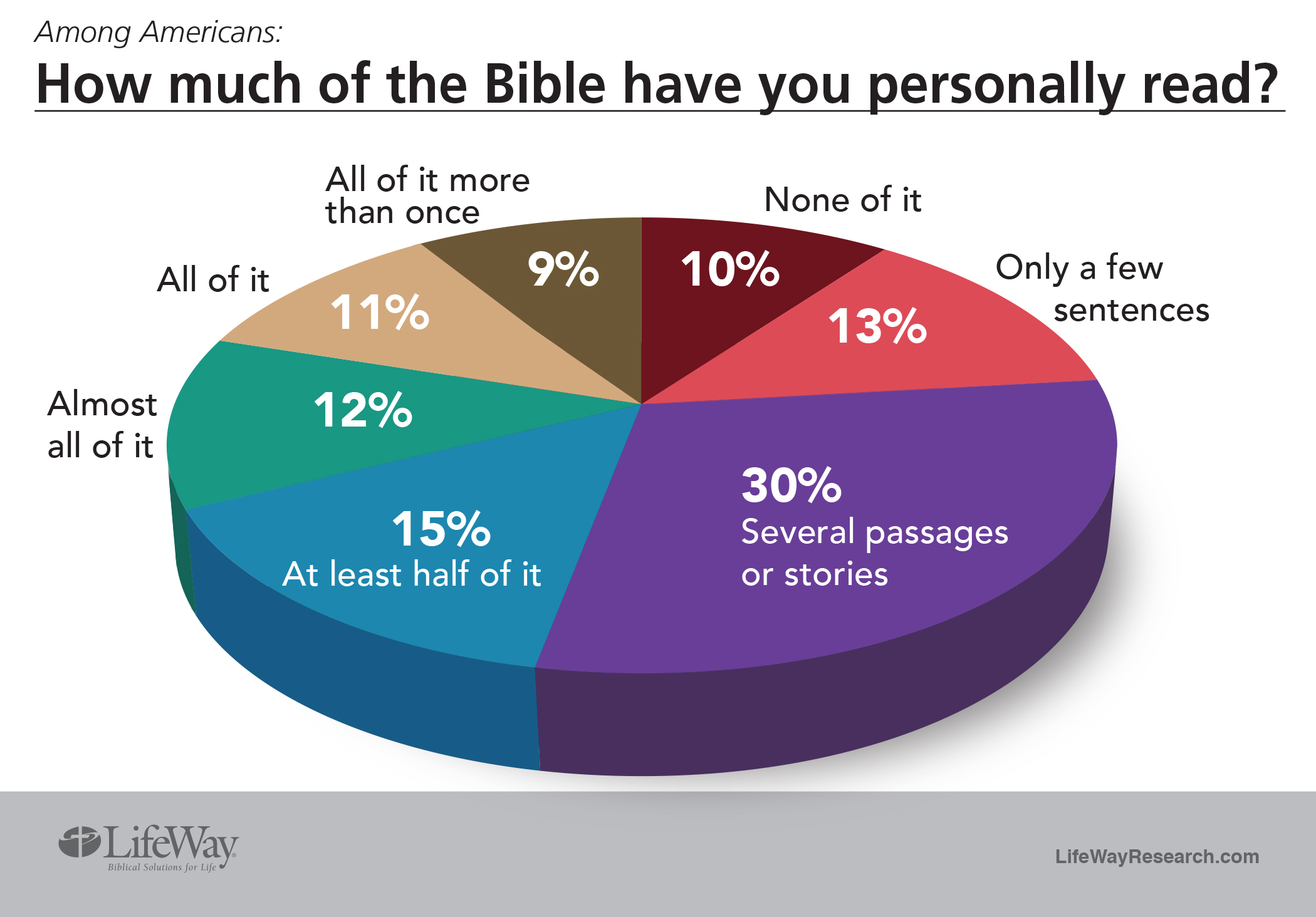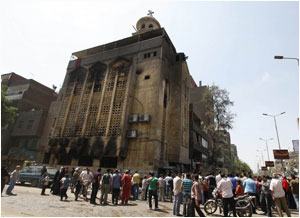3 Spiritual Truths From Isaac’s Life
By Robin Sam

And let us not grow weary while doing good, for in due season we shall reap if we do not lose heart. (Galatians 6:9)
THE book of Ecclesiastes chapter 3:1-8 have some profound truths about there being a time for everything. Solomon, the book writer, begins the chapter by saying, ‘To everything there is a season, a time for every purpose under heaven.’ I’d like you to underline the last two words of the verse: under heaven. What is not said but implied is this: Yes, the action takes place on the earth but the time for everything is ordained by heaven. God has a clock and He goes by it. Left to ourselves, we would like to force God to act in the HERE and the NOW of our timeline. Unfortunately, that’s not how God acts! He can act at once, and He will, but only if it brings Him glory and helps in shaping our character.
“A time to plant, and a time to pluck what is planted.” (Ecclesiastes 3:2). The law of reaping applies only if we have followed the law of planting. That’s why the Bible insists on both sowing and reaping.
Those who sow in tears shall reap in joy (Psalm 126:5); Those who plow iniquity and sow trouble reap the same (Job 4:8); They sow the wind, and reap the whirlwind (Hosea 8:7); Sow for yourselves righteousness, reap in mercy (Hosea 10:12)
No sowing, no reaping. Our God is a God who rewards His children in due season. However, there are spiritual principles that we need to follow if we are to reap the rewards He has to offer us. We will examine the life of Isaac, an Old Testament Patriarch, to find out the three spiritual principles of reaping, that is receiving our rewards.
1ST PRINCIPLE OF REAPING: SOW!
Genesis 26:12 says, ‘Then Isaac sowed in that land, and reaped in the same year a hundredfold; and the Lord blessed him.’
The time that Isaac sowed is important. It helps us look at the blessing of a hundredfold reaping in its right Scriptural context. Genesis 26:1 states, ‘There was a famine in the land…’ So, there you go. Isaac sowed when there was a famine in the land. Is it easy to sow during a famine? No, it’s not! Ask any financial expert and they would tell you to hold on to your money during inflation. When the money market is sluggish, people don’t go on a buying or investment spree. They wait until the market shows signs of recovery. Isaac, however, did not consult a portfolio manager. He didn’t wait for the famine to go away. He sowed, during the famine.
I don’t know what went on in Isaac’s mind when famine struck the land. The land was Canaan, the Promised Land. Here he was in the land God promised to his father and him and there is a famine in the land. What good is the land, even if it’s the Promised Land, if it won’t yield a harvest? A famine is a season of drought. There’s no rain and hence there’s no sowing and, as a result, no yield. That’s when Isaac decided to sow! The reason why he decided not only to pitch his tent in Canaan but also sow during the drought was that he heard from the Lord. Isaac knew he was where God wanted him to be and that the land was promised to him.
Verse 2 & 3: ‘Then the Lord appeared to him and said: “Do not go down to Egypt; live in the land of which I shall tell you. Dwell in this land, and I will be with you and bless you”.’
Beloved brethren, are you in a situation of lack now? Do you feel a dryness in your bones? Is there nothing to look forward to in your life? Are you finding it difficult to make both ends meet? Perhaps, there’s a certain kind of famine in your life right now, but do not go down to Egypt, the land where you will be enslaved and your endurance tested. Ask God what you are supposed to do. When there was a famine during Abraham’s time, he went to Egypt. When there was a famine during Jacob’s time, God asked him to go down to Egypt (Genesis 46:3,4). But, Isaac, you are different. You cannot go down to Egypt because God has plans to move you up to Beersheba. More about it later.
He is the God of Abraham, Isaac and Jacob. He is also your God. He will speak to you and tell you what to do. Psalm 32:8 says, ‘I will instruct you and teach you in the way you should go; I will guide you with My eye.’
2ND PRINCIPLE OF REAPING: FAINT NOT!
If you have joyfully embraced the first principle, then you are on the path to prosperity. Prosperity is not necessarily opulence. To the believer, prosperity is not having a luxury yacht or a mansion by the beachside. Biblical prosperity is more than just the opposite of lack. To a believer, prosperity is having all sufficiency in all things. 2 Corinthians 9:8 says, “And God is able to make ALL grace abound toward you, that you, ALWAYS having ALL sufficiency in ALL things, may have an ABUNDANCE for EVERY good work.” The worldly rich can be a miserly lot. While their indulgence in their own selves may take the sheen off King Solomon’s fame, their attitude towards good works may put the miserly Ebenezer Scrooge, the protagonist of Charles Dickens’, ‘A Christmas Carol’, to shame. However, the man who has put his trust in the Lord is different. Not only does he have all grace abound toward him, he always has all sufficiency in all things. And, wait a minute, he also has an abundance for every good work. What a glorious blessing!
Genesis 26:12-14 tell us what happened when Isaac sowed during the famine: “Then Isaac sowed in that land, and reaped in the same year a hundredfold; and the Lord blessed him. The man began to prosper, and continued prospering until he became very prosperous; for he had possessions of flocks and possessions of herds and a great number of servants. So the Philistines envied him.”
If a hundredfold blessing is coming your way, be sure that the world’s envy will shortly cast an evil eye on you. ‘So the Philistines envied him.’ They put their envy to work. Two things happened as a result of Isaac’s prosperity. One, the Philistines closed up all the wells that supplied water to Isaac’s fields. Two, the king of the Philistines, Abimelech, asked him to vacate the land where he had pitched his tent and where he had just begun cultivation that led to a hundredfold blessing.
Proverbs 27:4 says, ‘Wrath is cruel and anger a torrent, but who is able to stand before jealousy?’ Isaac could not and would not and so ‘Isaac departed from there and pitched his tent in the Valley of Gerar, and dwelt there.’ There is no indication that Isaac felt dejected by the Philistine’s spiteful action. If he felt, he didn’t show. When the Philistines oppressed him, Isaac decided to fly than fight. When you fight you are on ground zero and you have the same attitude as that of your enemy’s. But when you decide to fly, you are on a higher altitude than the enemy. He’s flummoxed and doesn’t know what to do with you!
Beloved, when the world sees that you are blessed by God and comes up against you, will you wilt or wait? Isaac did not faint when troublemakers appropriated his wells one after another.
3RD PRINCIPLE OF REAPING: WATCH YOUR RESPONSE!
There’s a spiritual truth in Isaac’s response to the envious Philistines’ doings. Apostle Paul exhorted the church in Rome to: ‘Repay no one evil for evil. Have regard for good things in the sight of all men. If it is possible, as much as depends on you, live peaceably with all men’ (Romans 12:18), Isaac lived out the Scriptural principle by his action hundreds of years before Paul wrote it. He did not pick a fight with the jealous Philistines nor did he resist the authority of the king of the Philistines. Romans 13:1-2 ask us to be subject to the governing authorities. “For there is no authority except from God, and the authorities that exist are appointed by God. Therefore whoever resists the authority resists the ordinance of God, and those who resist will bring judgment on themselves.”
I’d like you to remember that Isaac’s seemingly timid response came from his position of strength. He was not a pushover or a weakling. Isaac was a wealthy man, he had not only possessions of flocks and herds but also a great number of servants, says the Bible. By Abimelech’s own admission, Isaac was mightier than them (Gen 26:16). He could have used his might to crush a vulnerable Abimelech because the Land was, after all, promised to him and his descendants. But Isaac would rather live in a tent with the Promise Giver than usurp the promise by his might and miss the glorious inheritance of the Lord. Isaac did not grow weary in sowing. He did not faint during the trials he faced in doing good. After he pitched his tent in the Valley of Gerar, he dug two wells – and both were taken over by the Philistines. What is your response when people revile you and falsely accuse you? Apostle Paul records Christ’s response to suffering and accusations in 1 Peter 2:22,23: ‘Christ also suffered for us, leaving us an example, that you should follow His steps: who committed no sin, Nor was deceit found in His mouth who, when He was reviled, did not revile in return; when He suffered, He did not threaten, but committed Himself to Him who judges righteously.’ That’s how Isaac reacted too. When he had the might to hit back against the Philistines and their king, he chose to submit himself to the will of God. He would rather God work out his inheritance for him.
WHOM DOES GOD REWARD?
He rewards those who patiently trust in Him
Beloved, after Esek (quarrel) and Sitnah (enmity) comes another well. That’s the well of blessing. That’s your well of Reheboth (spaciousness). That’s where Isaac found out that the Lord had made room for him and his people. Reheboth is where you shall be fruitful in the land. But we are not told how many days, months or years passed between the Valley of Gerar and Esek, Esek and Sitnah, Sitnah and Reheboth. Isaac did not know when the well at Reheboth would be found. All that Isaac knew was there is a God who rewards in due season. He did not know when the due season was but he was willing to wait out on God’s promises.
He rewards those who pursue peace
Dear child of God, when you pursue peace sooner than later you will find it. ‘Blessed are the peacemakers, for they shall be called sons of God’ (Matthew 5:9). Abraham pursued peace with his nephew Lot – a man like him, but Isaac went a step ahead and pursued peace with the Philistines, a nation quite unlike his people. In 3 John, we see Apostle John commending Gaius’ generosity. Of particular interest is verse 5. ‘Beloved, you do faithfully whatever you do for the brethren and for strangers…’ Gaius treated the church and the gentile community alike. He did not have two different yardsticks for them. Isaac had heard of his father’s generosity to Lot, now it was his time to show it not to Lot but to the strangers, the heathens. And he did just that! Please read Genesis 26:23. ‘Then he went up from there to Beersheba.’ When you decide to fly than fight you can only go up. Beersheba is also the place where Abimelech came and made a covenant with Isaac. What made Abimelech sign up a treaty with Isaac, whom he had earlier chased out of his country? Two things. The No.1 reason in Abimelech’s own words, ‘We have certainly seen that the Lord is with you.’ Secondly, ‘You are now the blessed of the Lord.’ This was possible only because Isaac chose the path of silence over the path of strife. He pursued peace.
He rewards those who seek and please Him
When you demonstrate Christ-like character your enemies will be able to see you are not alone. ‘We have certainly seen that the Lord is with you.’ They will also see that the prosperity of your life is quite unlike theirs. ‘You are now blessed of the Lord.’ How did this happen in the life of Isaac? Proverbs 16:7 gives us the answer: ‘When a man’s ways please the Lord, He makes even his enemies to be at peace with him.’
Dear child of God, when you give up your right over possessions and place for the Lord, when you stop striving and decide to show Christ to those around you, you will not be forever in the Valley of Gerar, God will take you to Reheboth and move you up to Beersheba. That’s where people will recognize the power at work in your life – Christ’s atoning work of the Cross. When God appeared to Isaac at Beersheba and spoke to him reconfirming the promise given to his father, he built an altar, called on the Name of the Lord and pitched his tent there. Pitching his tent at Beersheba was his last priority, but the top of the mind things were building an altar and calling on the Name of the Lord. Is communion with the Lord your first priority every day? Is church your preferred place on Sundays? Is Bible the first book that you turn to at the crack of the dawn? “But seek first the kingdom of God and His righteousness, and all these things shall be added to you”, says Matthew 6:33. Isaac sought the Lord knowing this spiritual truth mentioned in Hebrews 11:6, ‘he who comes to God must believe that He is, and that He is a rewarder of those who diligently seek Him.’
WHAT ARE OUR REWARDS?
God, sure, blesses us with earthly blessings, but that is not His core agenda for His children. Apostle Paul records at least 5 things that God gives to His children. Three of the 5, God can give us while we are still on the earth. However, two of them are reserved exclusively for the other life. What are the 5 rewards that God would like to bestow upon His children? Romans 2:7 and 10 list eternal life, glory, honour, immortality and peace as rewards God will render to us according to our deeds. Note that glory, honour and peace are repeated twice. God can make those available for us on this earth. However, if He does not give them to us here, He will surely give them all together (eternal life, immortality, glory, honour and peace) when we reach the other shores.
It’s my prayer that the God who rewards in due season will find you and I worthy for these rewards when He comes back to take up the church with Him. To Him be all glory. Amen.





















